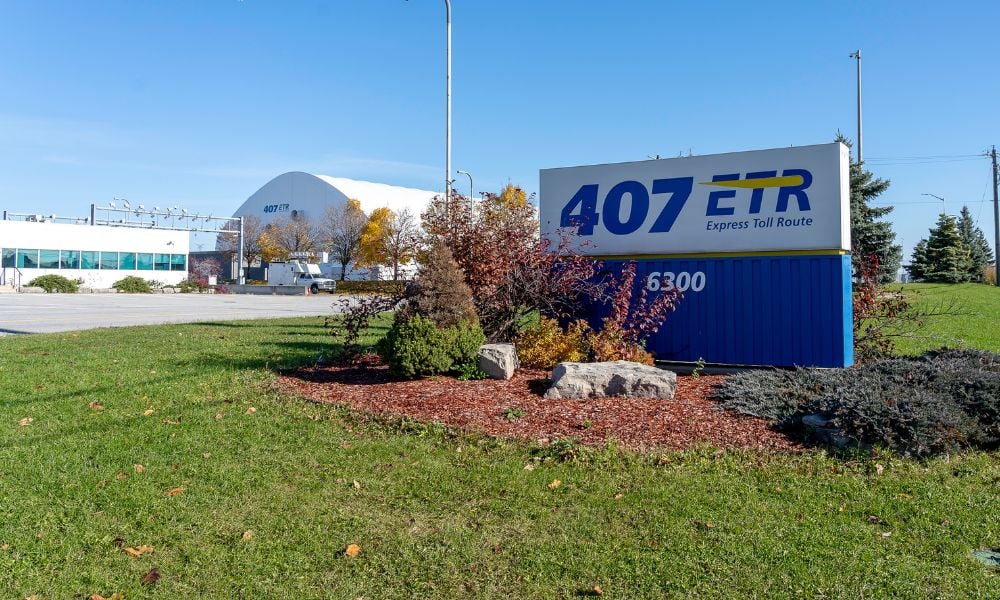Board highlights $1.7 billion in annual revenue, inflation-linked cash flows, and scale in new report

With over $1.7bn in annual revenue and more than 70 years remaining on its lease, Toronto’s 407 Express Toll Route (ETR) has emerged as a central infrastructure holding for CPP Investments.
In CPP Investments’ report Paving the Way: A Landmark Investment in Ontario’s Economic Arteries, it said the toll highway offers scale, inflation-linked Canadian-dollar cash flows, and a durable regulatory structure—factors the board identified as core to its investment strategy.
“The 407 Express Toll Route stands out both in Canada and globally for the exceptional long term advantages it provides investors,” the report stated.
The board, which holds a 50.01 percent stake in the asset, said it is “keenly interested in transportation infrastructure assets like toll roads which offer scale and stability.”
CPP Investments acquired its interest in the 407 through a series of transactions starting in 2010, joining current co-owners SNC-Lavalin Inc. and Spain-based Ferrovial S.E.
According to Blacklock’s Reporter, operators of the 407 ETR report profit margins between 25 and 30 percent.
The highway was originally constructed using public funds and leased by the Ontario legislature in 1999 to private operators for 99 years at a price of $3.1bn.
It has since become one of CPP Investments’ most successful global infrastructure holdings, according to the report.
Andrew Alley, managing director and head of infrastructure for North America and Australasia at CPP Investments, said, “This asset ticks all the boxes for us,” citing the stability and long-term outlook of the asset as key factors.
The report notes that the 407’s lease duration is more than double that of comparable infrastructure agreements globally.
As reported by Western Standard, the 407 ETR supports over 360,000 daily drivers between Burlington and Pickering, Ontario.
The average cost to use the highway is $14.74 per day.
Peak tolls reach 62¢ per kilometre for motorcycles, 78¢ for passenger vehicles, and $1.54 for freight trucks. The road’s all-electronic tolling system facilitates continuous traffic flow, reducing commute times and fuel consumption.
Usage of the route has increased more than 90 percent since opening, and the highway now sees over 3 million weekly trips.
CPP Investments cited this high usage as further evidence of the asset’s strength. In 2023, the toll road generated $692.2m in profit.
The report also underscored CPP Investments’ collaboration with other shareholders in areas including cybersecurity, capital structure, and sustainability.
The 407 ETR served as one of CPP’s first decarbonization trial assets in 2023, leading to a multi-year roadmap focused on fleet electrification, energy-efficient lighting, and renewable energy integration.
While CPP Investments did not specify any other Canadian locations for toll road investments, Blacklock’s Reporter noted that this marks the strongest endorsement of toll infrastructure by a federal entity since PPP Canada studied toll financing in 2013.
The 407’s ownership structure and its original lease have faced criticism.
During the same year’s Commons transport committee hearings, Paul Moist, then president of the Canadian Union of Public Employees, called the lease “an ideology, not a business plan,” adding that “the public always winds up holding the bag.”



